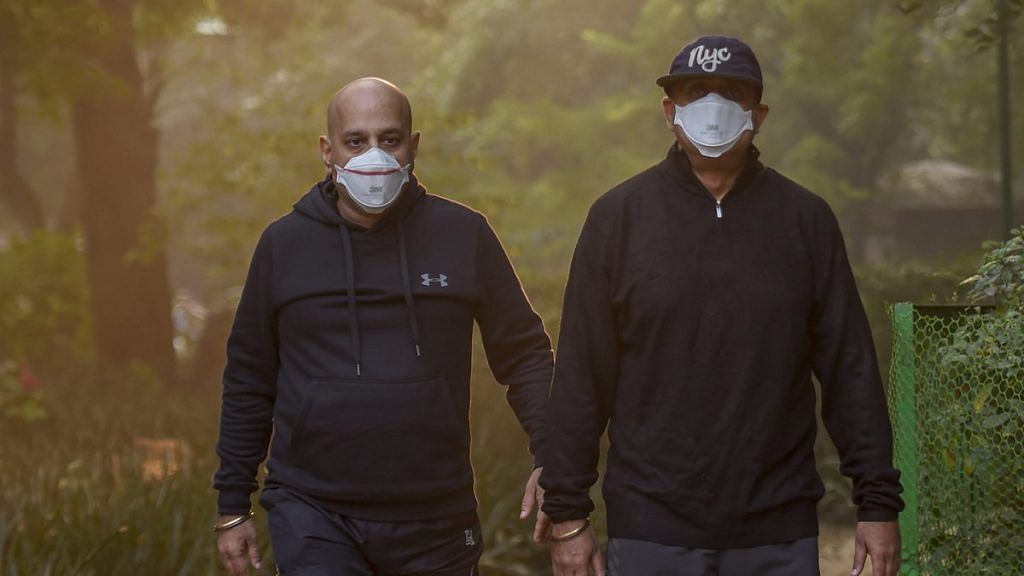Experts say that masks and purifiers do reduce effect of particulate matter but their health benefits are still under a cloud.
New Delhi: The onset of winter, these days characterised by plummeting air quality levels, has led to a spurt in the sales of air purifiers and anti-pollution masks. Health experts, however, say they are not sure about the benefits or effectiveness of these health products.
“Masks do reduce PM 2.5 inhalation but we do not know by how much,” said Dr Balram Bhargava, director, Indian Council of Medical Research (ICMR). “Air purifiers also reduce particulate matter in a room but how beneficial they are, we do not know.”
Bhargava was replying to queries from ThePrint after releasing the report of a study on the impact of air pollution on deaths, health and life expectancy in India Thursday. The study, published in The Lancet Planet Health 2018, found that one out of every eight deaths in India is attributable to air pollution — more than the disease burden from smoking.
Also read: 1 out of 8 deaths in India linked to air pollution, says study in Lancet
‘Will not stop carcinogenic gases’
While the experts said that masks could limit inhalation of some particulate matter, it did not mean they would provide full protection.
“Thinking that by wearing masks one will be fully protected is not going to happen,” Dr T. K. Joshi, advisor to the environment ministry, told The Print. “Many studies have been conducted so far and none has proved that masks can stop the long-term effects of air pollution such as heart disease.”
Joshi added that masks used by common people can only stop some particulate matter but not harmful carcinogenic gases like benzene.
“The masks in the market do not have certification to show that they can do what they claim to. The ones used also need to fit properly,” Joshi said. “All sizes for women and children are also not perfect to stop certain particulate matter.”
He, however, mentioned that certain specialised masks have the capacity to stop the most hazardous and toxic gases but they were used under medical clearance and supervision mainly in industries and chemical factories.
Also read: All the legal attempts made to combat Delhi’s air pollution in the last 2 decades
‘Masks a psychological boost’
Joshi said masks may have psychological benefits, in that they make people feel safe. “At the government level, masks can be part of advisory which they are but you cannot make them compulsory,” he said.
Further, Joshi talked about the human tendency of developing “tolerance”.
“Tolerance is a burning issue in medical research. When you are persistently exposed to air pollution, you may develop tolerance but research has not proven it yet,” he said. “The body does adapt. As of now, research worldwide is happening to find the capabilities of tolerance that the body develops. It is a complicated issue.”
